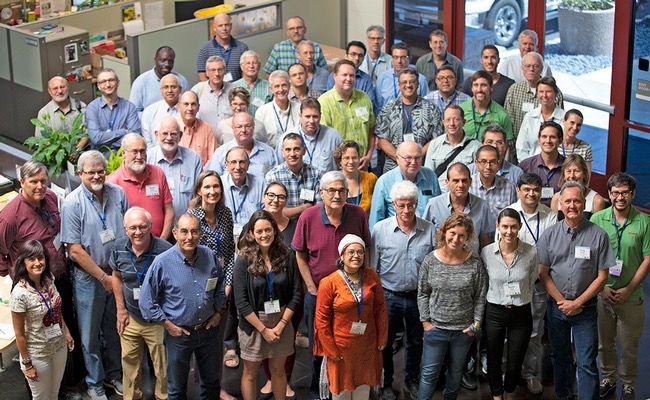New Series of Nitrogen Management Advice Available
UC ANR Publishes Nitrogen Management Advice for Fruit, Nuts, and Other Crops
By Pam Kan-Rice UC Agriculture & Natural Resources
California growers can download a new series of publications summarizing efficient nitrogen management practices from UC Agriculture and Natural Resources. The publications are designed to assist growers in complying with state regulations for tracking and reporting nitrogen fertilizer applied to crops, in an effort to prevent nitrogen from leaching into groundwater.
The science-based publications are associated with a series of trainings for growers and Certified Crop Advisers to develop efficient nitrogen management practices, an effort coordinated by UC ANR’s California Institute for Water Resources.
“Our role is to provide farmers, agricultural consultants and policymakers the best science possible for making decisions on managing and protecting California groundwater,” said Doug Parker, director of the water institute.
The free publications—created from training materials, lessons learned from the training sessions and from additional UC research—can be downloaded at http://ucanr.edu/
The following publications are now available for download:
· Principles of Nitrogen Cycling and Management
· Irrigation and Nitrogen Management
· Nitrogen Management for Nut Crops
· Nitrogen Management for Deciduous Fruit and Grapes
· Nitrogen Management for Citrus and Avocado
· Nitrogen Management for Cool-Season Vegetables
· Nitrogen Management for Strawberry Production
· Nitrogen Management for Processing Tomato
· Nitrogen Management for Corn on California Dairies
The publications were authored by Parker of California Institute for Water Resources; Patrick Brown, professor in the UC Davis Department of Plant Sciences; Allan Fulton, UC Cooperative Extension advisor, Tehama County; Tim Hartz, UC Cooperative Extension specialist emeritus, UC Davis Department of Plant Sciences; Dan Munk, UC Cooperative Extension advisor, Fresno County; Daniel Geisseler, UC Cooperative Extension specialist, UC Davis Department of Land, Air & Water Resources; Michael Cahn, UC Cooperative Extension advisor, Monterey, Santa Cruz and San Benito counties; Richard Smith, UC Cooperative Extension advisor, Monterey, Santa Cruz and San Benito counties; Marsha Campbell, UC Cooperative Extension advisor emeritus, Stanislaus County; Sat Darshan Khalsa, UC Davis project scientist; and Saiful Muhammad, UC Davis graduate student.
Developed in 2014, the training program has been offered at 11 different locations around the state, most recently in Fresno. More than 1,000 Certified Crop Advisers have taken the training.
“Based on course evaluations, the percentage of participants with good-to-complete understanding of nitrogen management increased after the training,” Parker said. “In addition, the participants found the presenters very knowledgeable and informative. Most importantly, the majority of participants felt they were better prepared to address nitrogen mitigation regulatory requirements after the training.”
The nitrogen management training curriculum was developed by a group of UC ANR faculty, specialists and advisors. The first day focuses on the nitrogen cycle in crop production systems, nitrogen sources, irrigation and nitrogen management, and nitrogen budgeting. The second morning covers annual and permanent crops and nitrogen planning practices.
For more information on the nitrogen management training materials, visit http://ciwr.ucanr.edu/
The Nitrogen Management Training and Certification Program is a joint effort between the California Department of Food and Agriculture, UC Agriculture and Natural Resources, California Association of Pest Control Advisers’ Certified Crop Adviser Program and the Regional Water Boards.
University of California Agriculture and Natural Resources researchers and educators draw on local expertise to conduct agricultural, environmental, economic, youth development and nutrition research that helps California thrive. Learn more at ucanr.edu.











